I sometimes think that Nikon could’ve stopped producing cameras after the apparition of the Nikon F2. The way this camera changed everything is engraved deeply in the world of photographers ever since, and the Nikon legend would’ve been made forever. But no, they had to come up with Nikon F3, and so, created another iconic camera, another legend, another reason for me to torture my account.
As with any other rant on my cameras, I will not delve into the intricacies (technological or otherwise) of this camera. Just my thoughts on it, why I enjoy using it, and such. There are zillions of places on the wide web where you can find the minutest details on how it works, history, models and whatnot. This here is my own take.
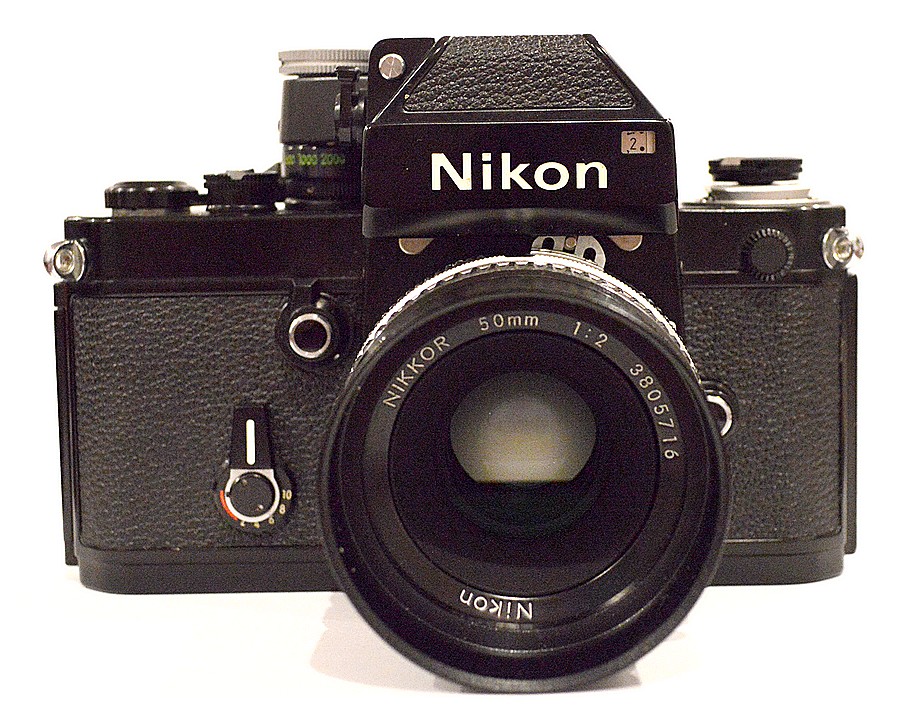
Jokes aside, the F2 was a revolution, as I understand it. As Ken Rockwell put it “The original Nikon F of 1959 put Leica in the coffin, and the F2 was the camera the almighty himself used to hammer in the nails.” The above is, I think, the entire essence of the Nikon company (in general), and of the Nikon F2 (in particular), its status and importance in the field of film cameras history.
I acquired this camera a long time ago, very early 2000s, in mint condition. If you were around and used film cameras, you know those were the times when people simply discarded full boxes of analogue photography equipment and cameras in the charity shops, or simply giving these away for the price of a pint of Stella. Mine was bought from a reputable photographic shop in London, and I have the receipt to prove it. The price was really low, which made me think at the time it must be something wrong with the camera. But it wasn’t; more, the gentleman selling it gave me what he said is the original leather case that came with it. It resembles very much to the Nikkormat cases, but it’s not identical.
I remember first time when I held it in my hand: it looked smaller than I would have thought. And lighter, because I was expecting it to be more heavy, larger than say, my Nikon F3. But it was not, and that was a really pleasant surprise. Very solid, its heft giving me a sense of a stable platform to shoot.
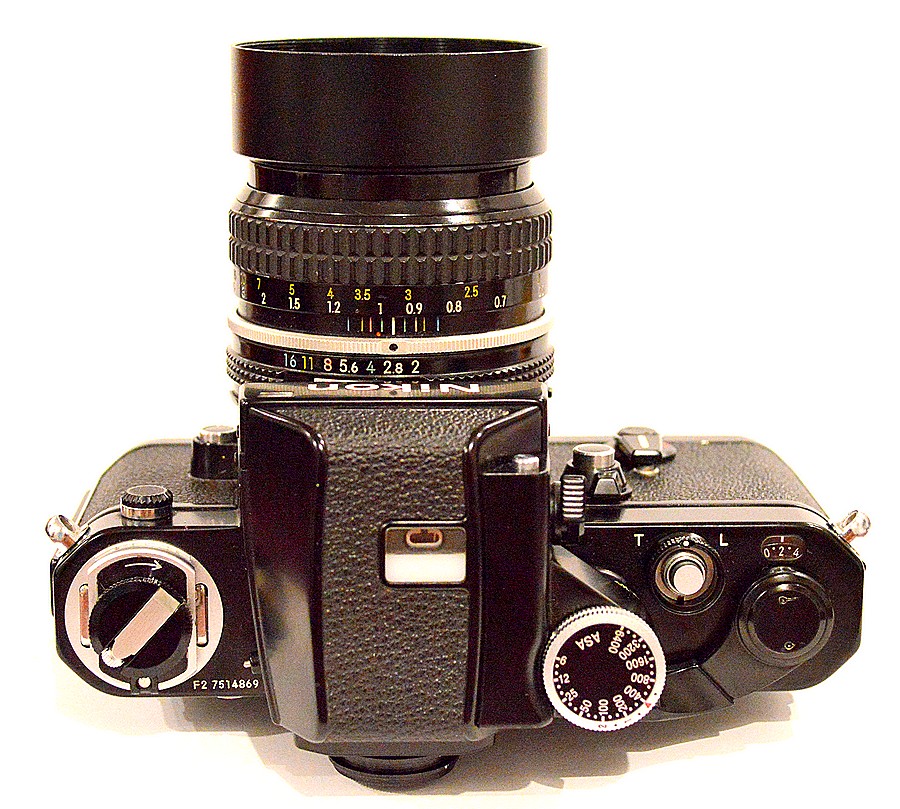
The meter on the DP1 was in pristine condition, as was the camera at the time of buying it. Both still are, and I am surprised at how well the meter held all this time. The aperture/meter/speed indicators are luminous and still very bright in the viewfinder; I guess is just luck, but then the camera has been built to the famous Nikon standards.
I remember how annoyed I was when I learned that I have to do the Nikon shuffle every time I changed the lens on my Nikkormat FT, but over the years it became a second nature. This was why the annoyance of the thing was completely gone by the time I acquired this F2; it became a thing of muscle memory, just install and turn the aperture ring both ways. The camera now knows what to work with.
It does take a while to get used accessing the longer shutter speeds: the self-timer is doing a great job, and is pretty much self explanatory. The entire setup is simple, and it comes in handy to have a up to 10 secs speed. When it comes to meter cut off, we already know of this: the lever must be kept at an angle from the body, as per say, my Nikkormats, or the FM3a. Same thing, and since I am a right- eyer, I do not experience issues with the lever poking in my eye when shooting. Others do, and I guess is a matter of getting used to it. Or not.
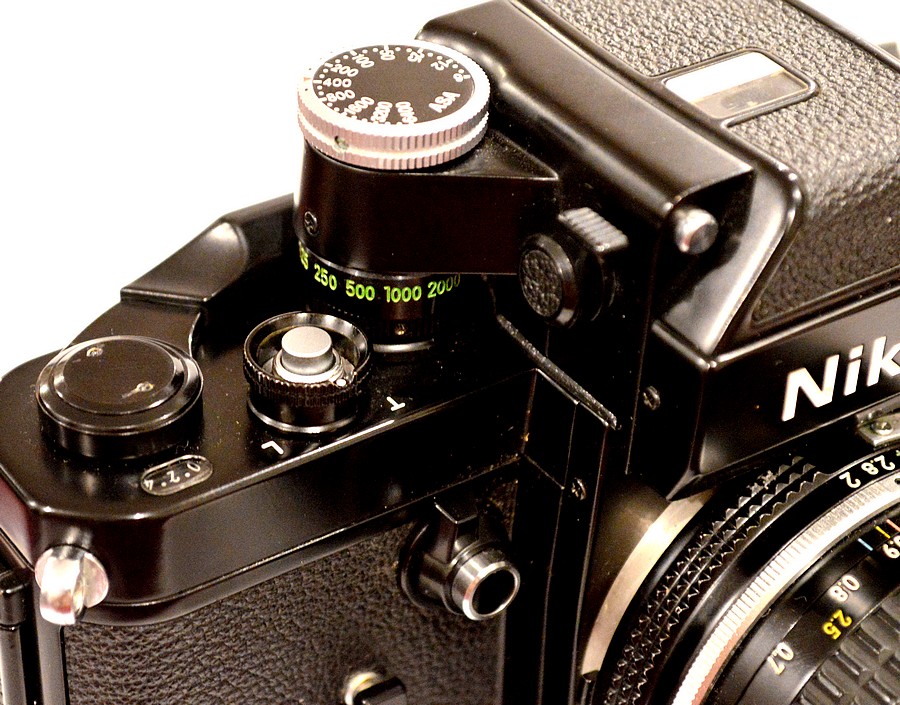
I rarely shoot with the mirror up; I can name the reasons for this, but this is not the time. However, having this feature available is something that many photographers are grateful to Nikon. DOF preview is also there, but this is another thing that I do not use. Call me Mr. Adventurous, if you like.
Using this F2 must’ve been indeed a game changer for the photographers of the era, and if you ever held and used a Nikon F2, you know why. It oozes sturdiness, craftmanship, assurance that it will complete the job, and it inspires a sort of confidence in what you’re doing. Not very different to the Nikon F3 handling, from this perspective. Many have said more beautiful things about the F2, so I am going to leave it at that. I will say this though: if you care for this camera, it will care for you. But we know this is valid for any camera, right? Right !
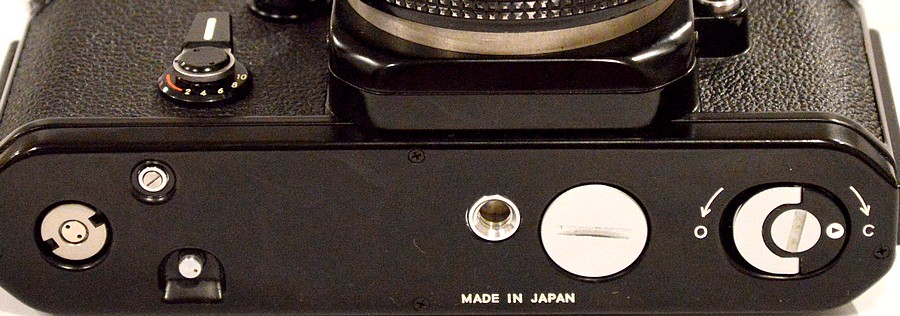
As film change goes, the hinged backdoor was indeed a great thing to have at the time; the Nikon F, beautiful machine that it was and is, needed the removal of the entire half of the back of the camera, in order to put film in, or take the film out. Depending on the field conditions, this must’ve been a pita at times. The F2 just changed this, but kept the half moon lock ring. I like this thing a lot.
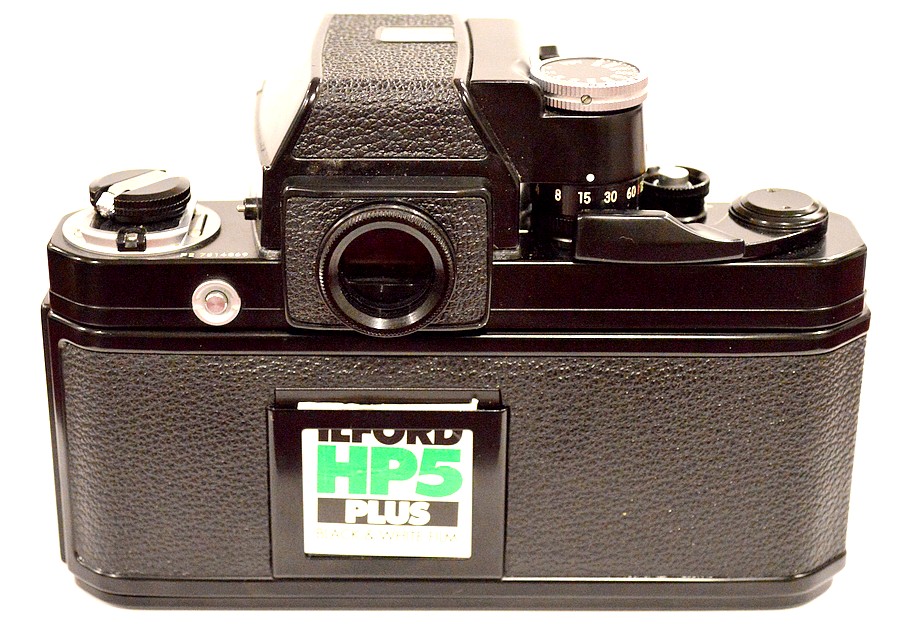
To sum up, just a few words about the DP1 finder: it is the first of its type, on the Nikon F2. It is a brilliant (literally) thing; compared to later versions, it keeps delivering. True, the CdS cells are not getting any younger, and the subsequent iterations are more sensitive and thus, delivering better performance. With its 50% weight ration within the 12mm spot and the distribution of the remainder throughout the rest of the viewfinder, expending from center towards the edges, it performs very well indeed. With dual reading of the light in both viewfinder and top of the DP1, adjusting for light is very simple, although nothing is very simple when it comes to this finder. I have read somewhere that the DP1 deserves a manual by itself, and I do believe that.
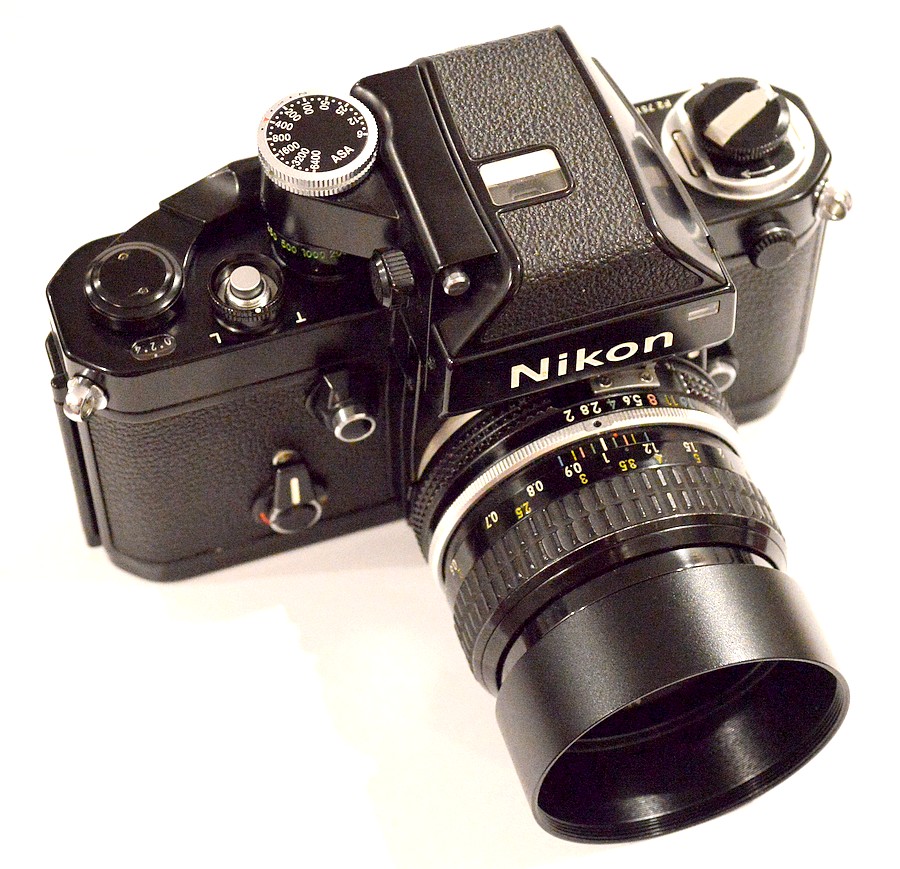
I said this was a real game changer for photographers, when Nikon took it out in the open. It’s a really great camera, and every time I take it with me for a walk or when travelling, I always have the feeling I cannot go wrong with it. Is this Nikon F2 Photomic the best SLR? I can’t say with certainty, but I can tell you this: it is a singular experience! When I acquired my Nikon line of cameras, I didn’t do it in an orderly fashion. So this F2 came after the F3, my F4 came before the FM3a. And when I switched from Nikon F3 to Nikon F2, I felt that the F3 (which I dubbed “the legend”) met its match. There are no two experiences the same with these cameras; each adds a bit to the feeling, the work, the ergonomics, the results. I guess this is what they call “the Nikon experience”.
All these photographs were taken in Venice, Italy, on Rollei ATP 1.1 film.
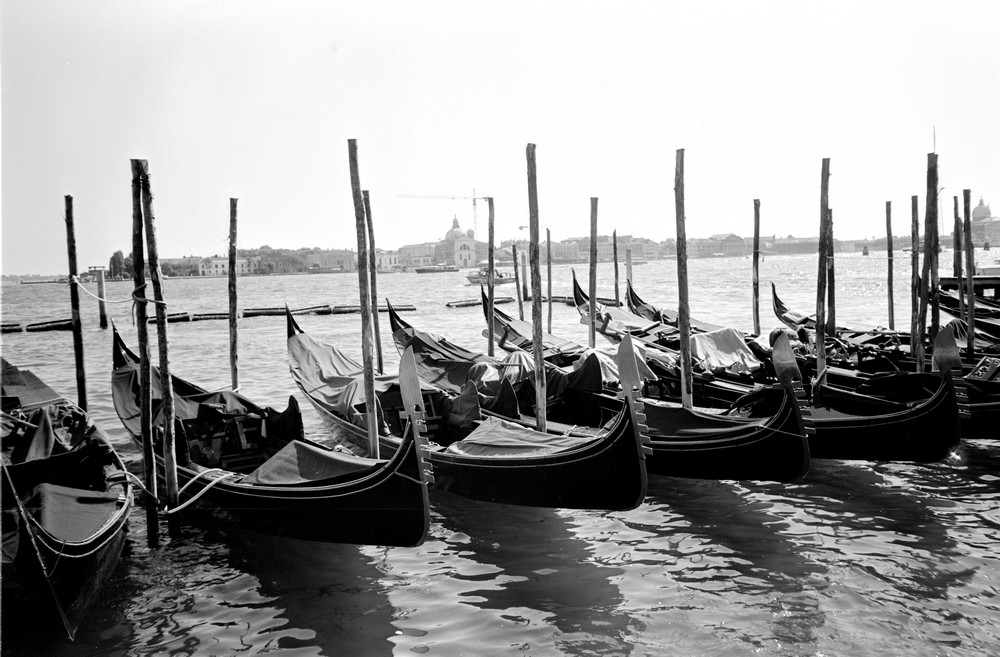
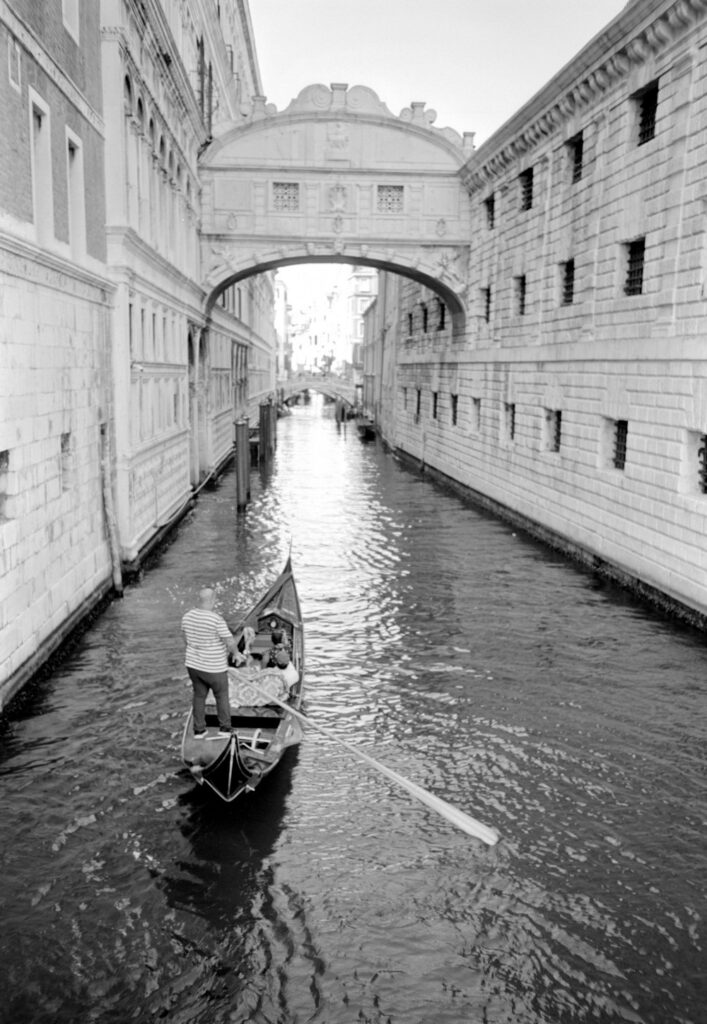
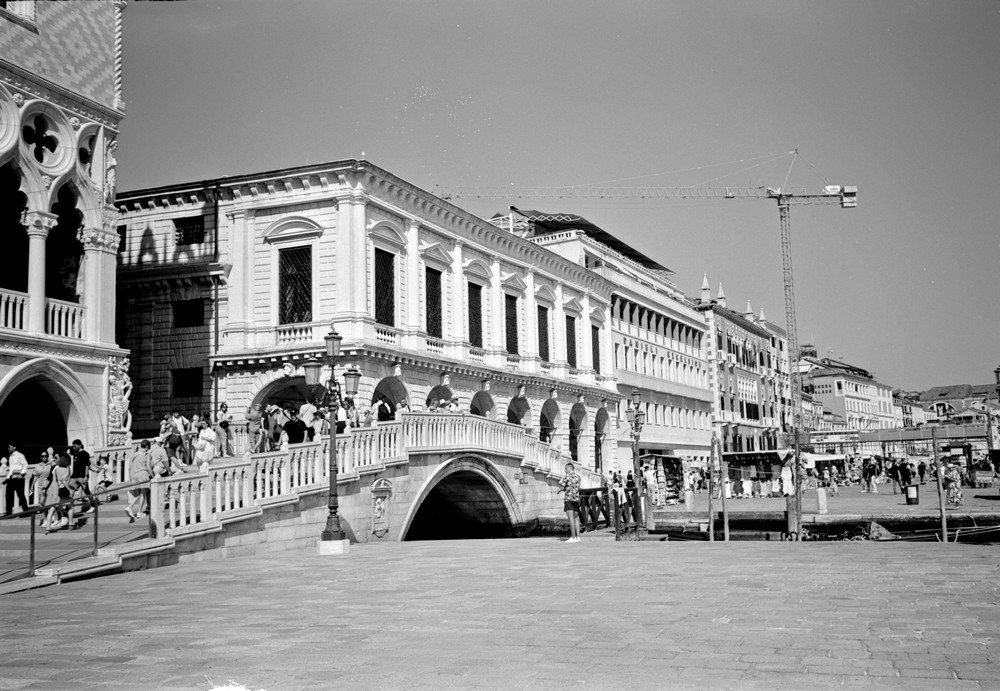
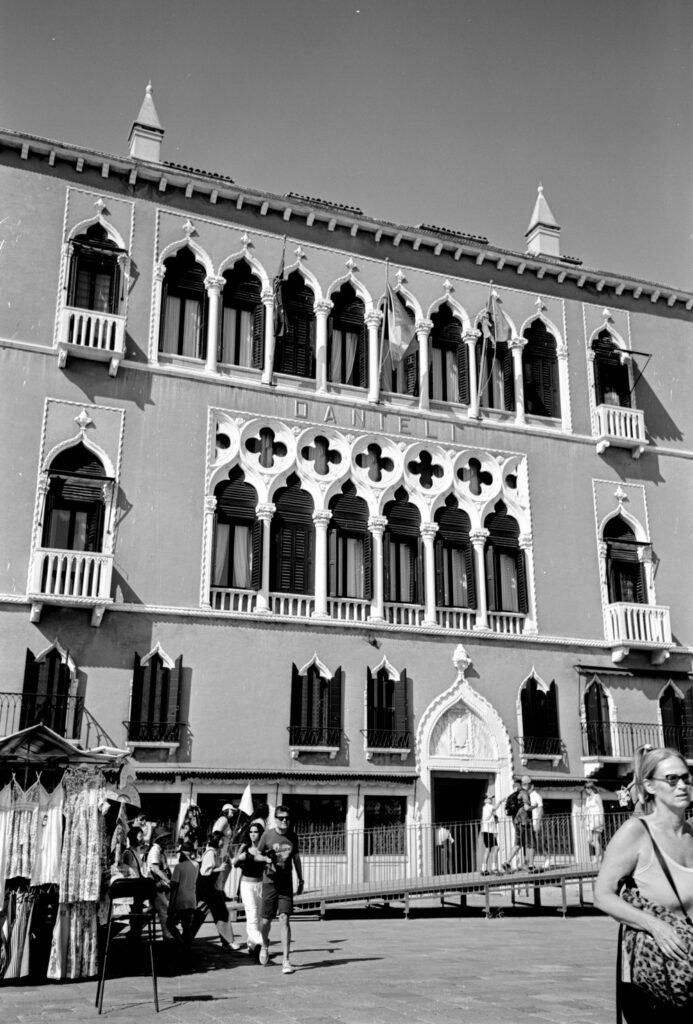
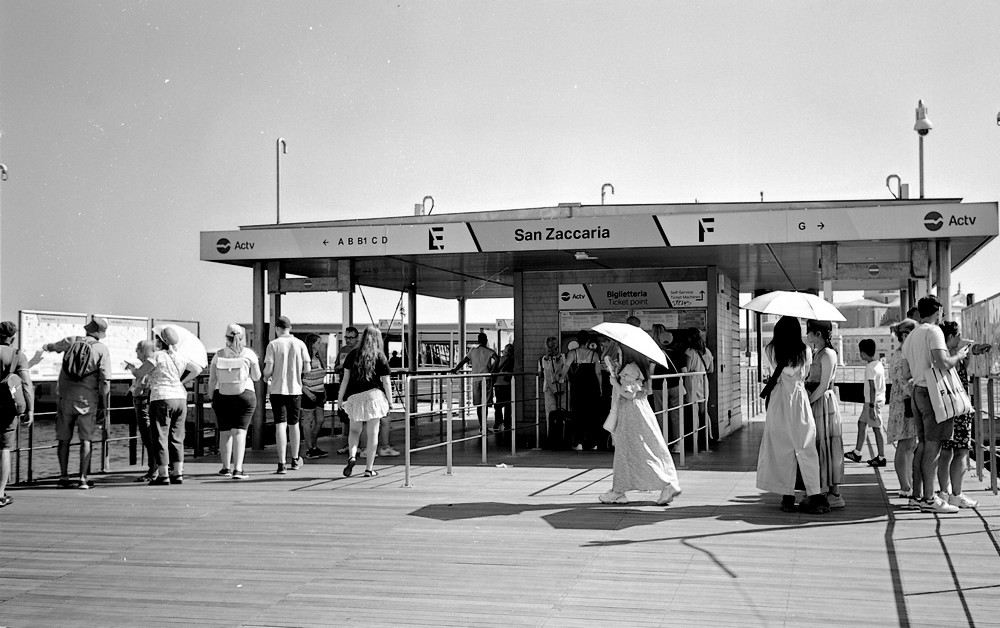
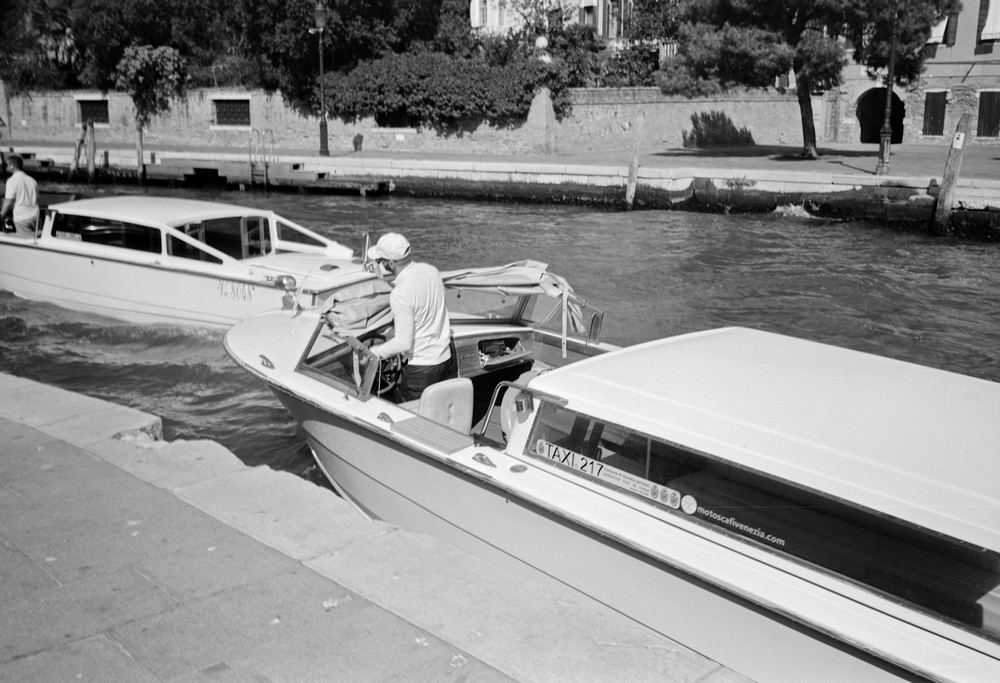
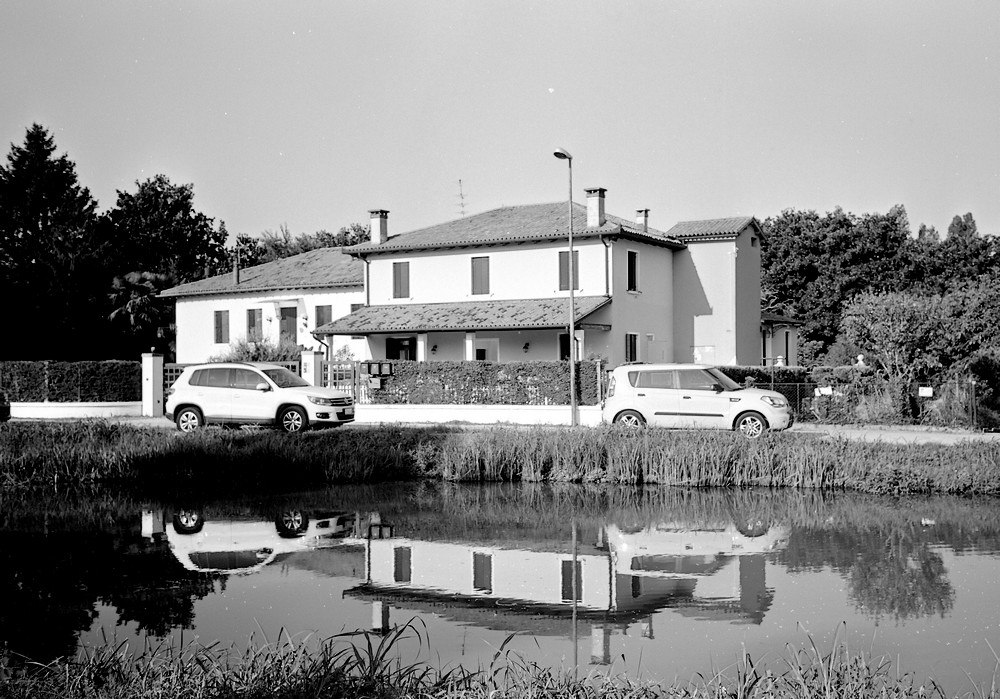
Share this post:
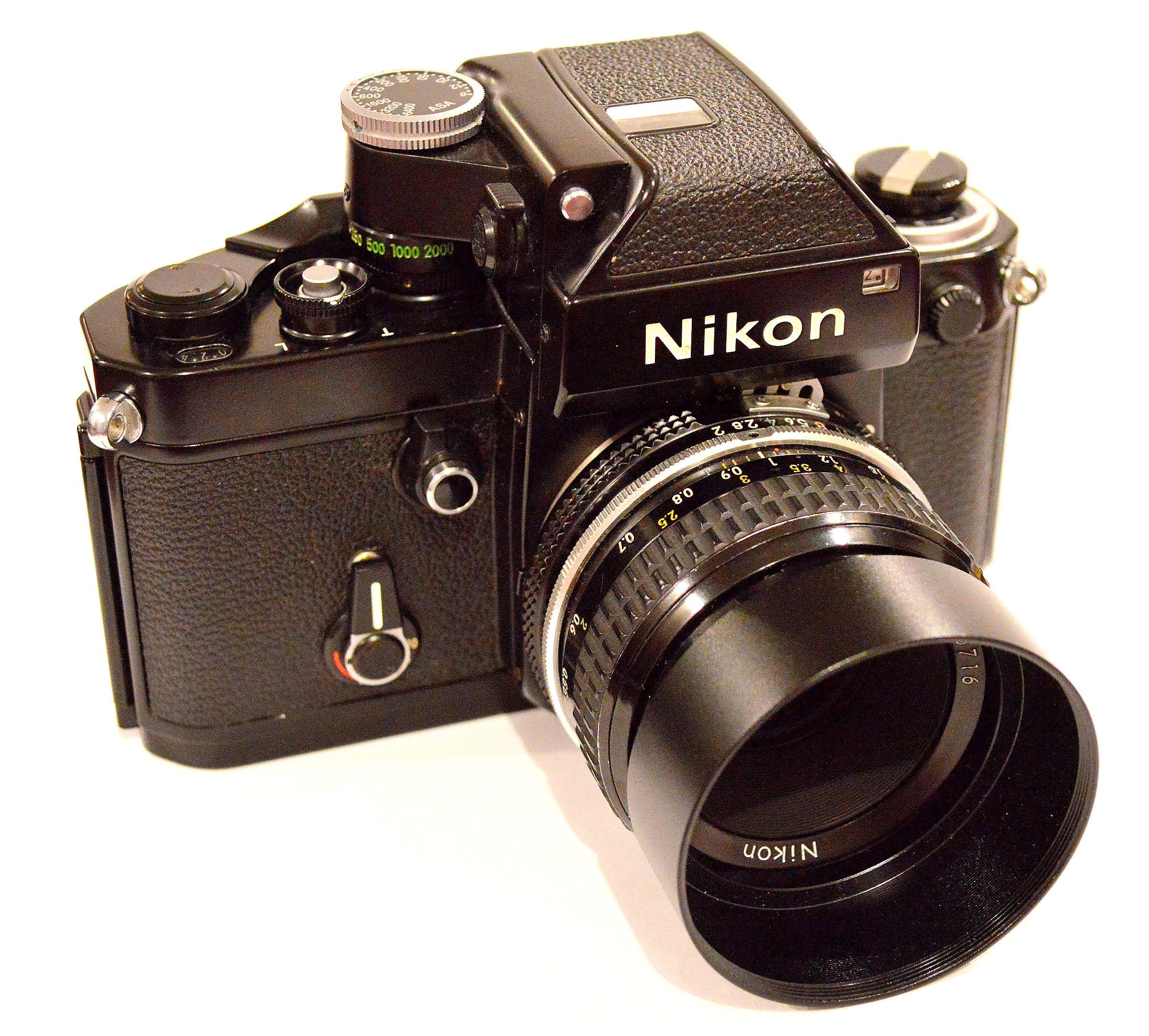
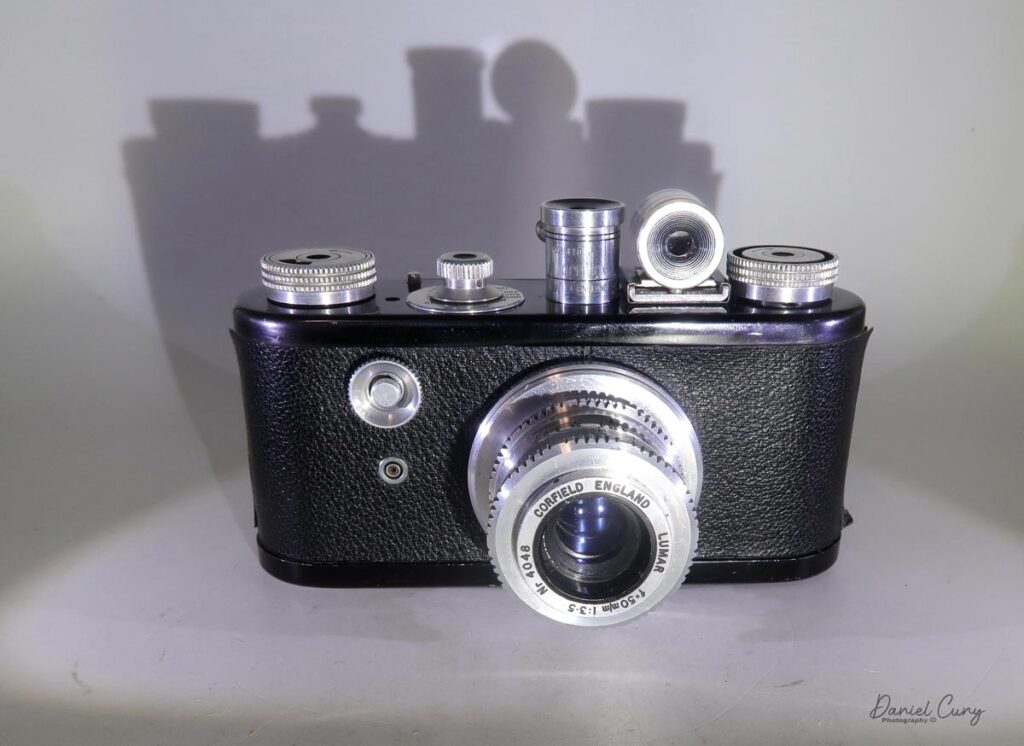
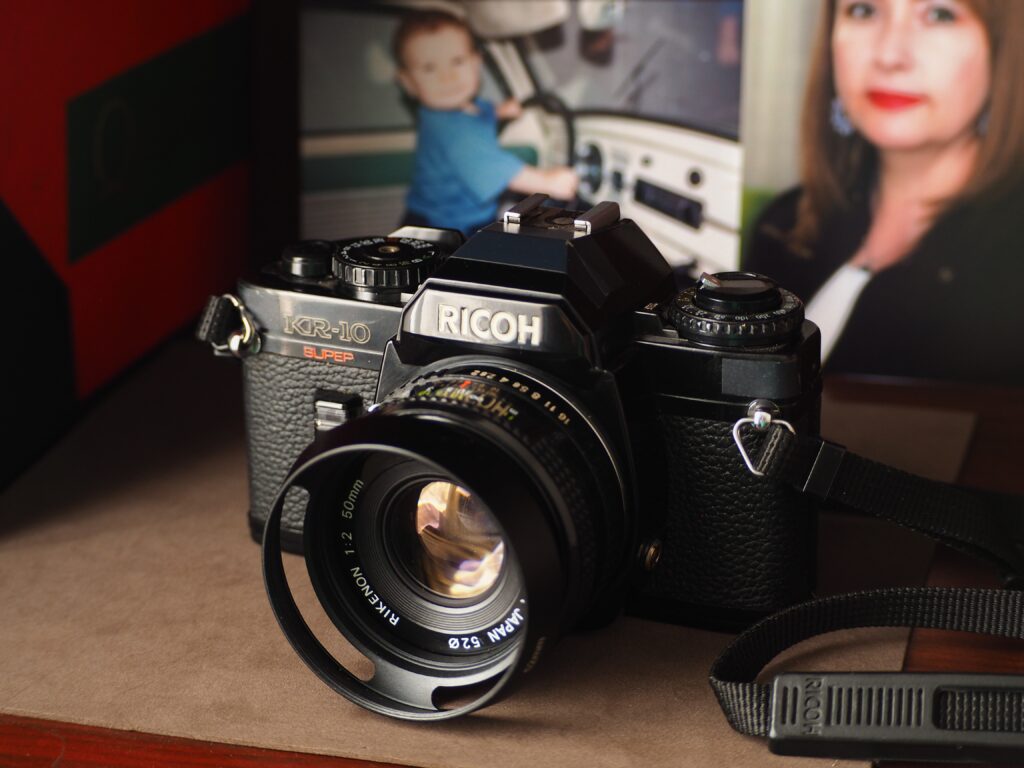
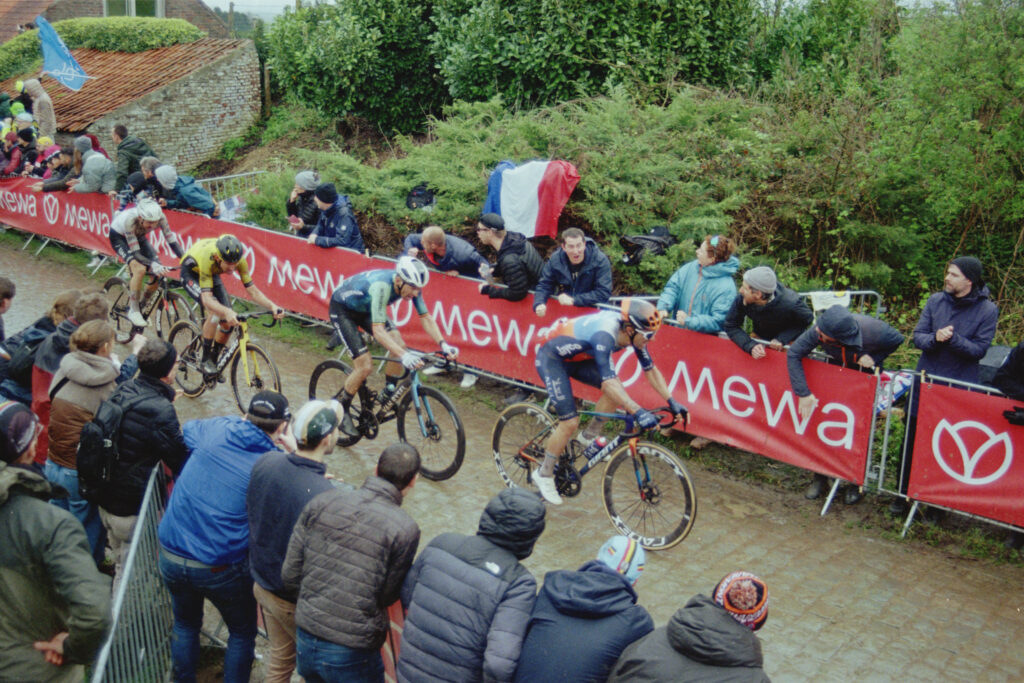
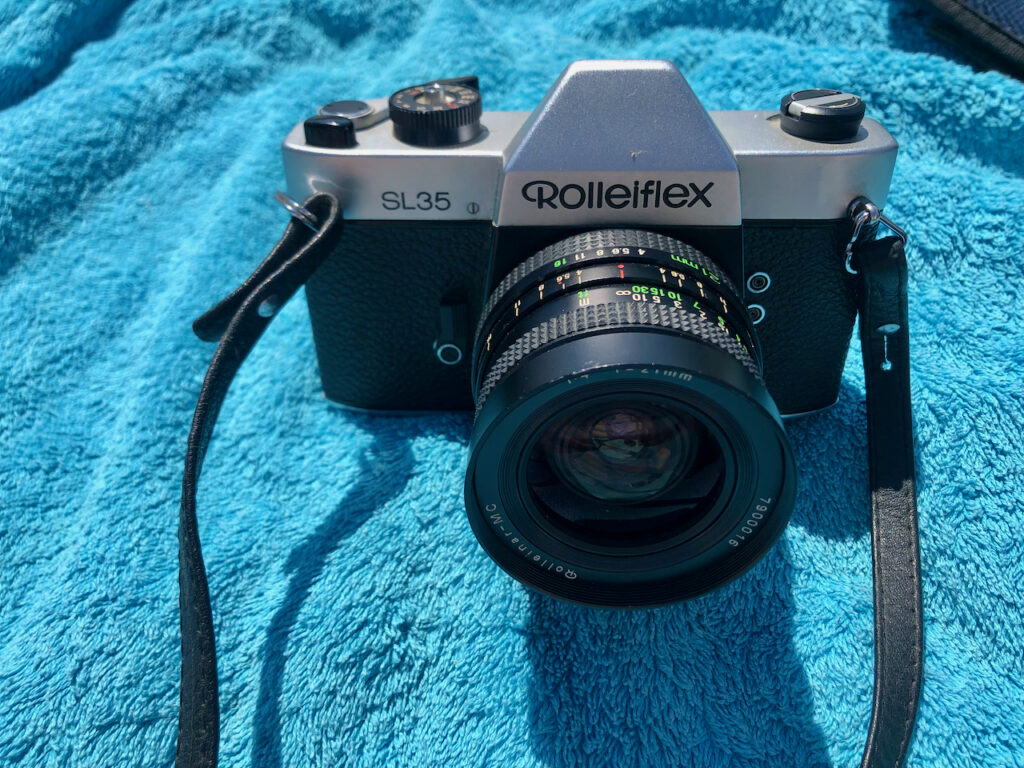




Comments
Thorsten Wulff on Nikon F2 Photomic – The game changer
Comment posted: 08/11/2024
Markus Larjomaa on Nikon F2 Photomic – The game changer
Comment posted: 08/11/2024
Geoff Chaplin on Nikon F2 Photomic – The game changer
Comment posted: 08/11/2024
Jeff T. on Nikon F2 Photomic – The game changer
Comment posted: 08/11/2024
Comment posted: 08/11/2024
Art Meripol on Nikon F2 Photomic – The game changer
Comment posted: 08/11/2024
Joseph Irvin on Nikon F2 Photomic – The game changer
Comment posted: 08/11/2024
Comment posted: 08/11/2024
Dave Powell on Nikon F2 Photomic – The game changer
Comment posted: 08/11/2024
Daniel Castelli on Nikon F2 Photomic – The game changer
Comment posted: 09/11/2024
Leon Winnert on Nikon F2 Photomic – The game changer
Comment posted: 09/11/2024
I also have an F which by comparison is a bit chunky, a litle less refined and dare I say clunky. But nevertheless a fantastic camera. With the F2s Nikon, in my opinion, refined the marque to a level of unrepeated perfection. One can wax lyrically about them but there is something inangiable about them. To truly apprecaite them one has to hold them, use them. Like a good meal, you don't fully apprecaite how good it is until you have eaten it.
I also I have an FM3a. That too is a really great camera, noisey shutter though when compared to the F2. Less complicted than the F2 and therefore a little easier to use.
I recently acquired a 62 year old Leica M3. That is a very different experince. Compels one to be much more contemplative and unobtrusive in ones picture taking. Chill, blend, leave no trace. The Nikons are a bit more business like.
Phil Harrison on Nikon F2 Photomic – The game changer
Comment posted: 09/11/2024
Hannah Gimblett on Nikon F2 Photomic – The game changer
Comment posted: 13/11/2024
I've never used a Nikon SLR, or come to think of it any Nikon camera at all - this has piqued my interest further.